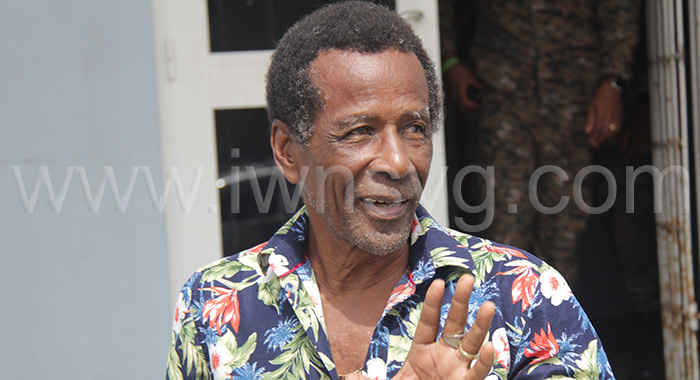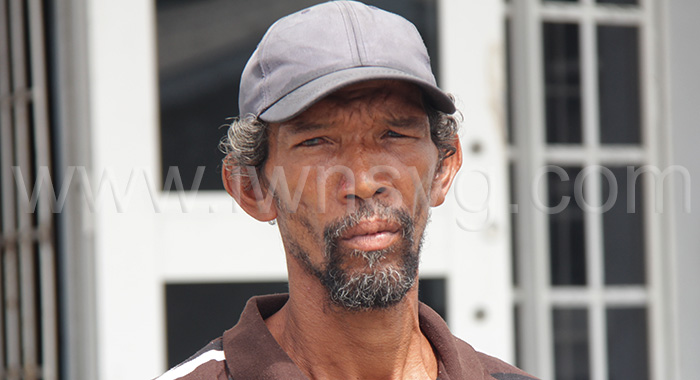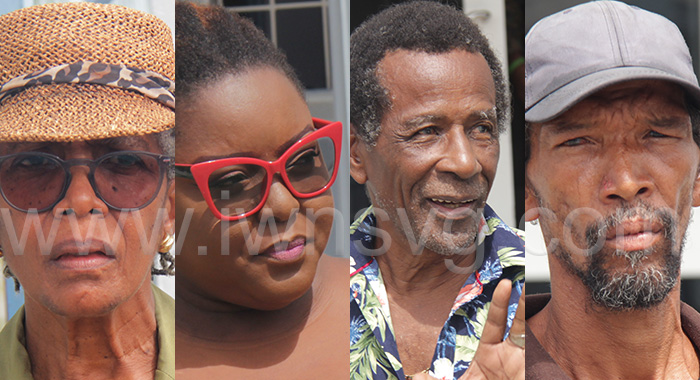The four people charged with holding a public meeting near Parliament in Kingstown in February 2023 were freed after a trial on Monday in which they did not have to mount a defence.
Magistrate John Ballah dismissed the charge for lack of evidence after hearing the prosecution’s case at the Calliaqua Magistrate’s Court.
He, however, told the defendants — Luzette King, Adriana King, Robert “Patches” King and John Mofford — that while they have a constitutional right to protest, the Public Order Act governs the steps that people must take if they want to hold a public meeting.
The four were unrepresented in the trial in which the prosecutor, acting Corporal of Police Shamrack Pierre, called four police officers as his only witnesses.
They were tried on a charge that on Feb. 23, 2023, at Kingstown, they each failed to comply with the instructions of Roycel Davis, Corporal of Police 471, when instructed to disperse from an unlawfully held public meeting which was held within 200 yards of the Court House building when the House of Assembly was sitting, contrary to Section 10(2)(a) of the Public Order Act.

However, when the fourth witness, Police Constable Chris Edwards, the investigating officer was about to testify, Pierre asked for an amendment to include the word “procession” in the charge.
Ballah granted the amendment.
Edwards’ testimony followed that of Corporal Roycel Davis of the Rapid Response Unit and constables Denver Da Souza and Shakeem Wilson of the Special Services Unit, two tactical units.
When Pierre closed his case after hearing Wilson’s evidence, the magistrate explained to the defendant that because they were unrepresented, the court would consider the evidence so far and determine if they should be made to enter a defence.
Ballah then said that based on the evidence presented by the prosecution, the court found that a prima facie case had not been made out and he dismissed the matter.
“There was no evidence presented to show that you all were part and parcel of a procession or a meeting under the Public Order Act,” Ballah said.
He said that while the prosecution presented oral evidence that Davis had told the four people to move from near the Parliament building, the evidence did not suggest that you were having a public meeting or a procession when he told them to move away.
“While there is case law that suggests that a public meeting could be a protest or a procession could be a protest, the circumstances here today is that the evidence led, what you were engaged in did not fall within the ambit of a public meeting or procession,” Ballah further ruled.

He told the defendants to be mindful that even though the charge against them was dismissed, the Public Order Act is still in place.
“The Public Order Act has not been deemed unconstitutional,” he said, adding that the law speaks to how a public meeting or a procession ought to be held.
“And as I said, a public meeting or a procession could fall under the ambit of a protest. If you want to have a public meeting or a procession, there is a way to go about doing it and the Public Order Act is there to try to create some sort of peace inside the public wanting to express their dissatisfaction.”
“… if you feel that your protest might fall within the ambit of a public meeting, you are to give the Commissioner of Police reasonable notice,” Ballah said.
He said he was aware that while the law does not specify that this notice must be written or oral, it is always wise to give written notice.
“Having given the Commissioner of Police written notice, he or she would write back to you and let you know whether or not your intention to have a meeting falls under the prescribed distance,” the magistrate further said, adding that the public order legislation speaks to prescribed time and distance.
“Distance speaks to the distance given in legislation of how far you ought to stay from the High Court when it is sitting, the House of Assembly when it is sitting or a head of department’s office,” he said.
He said the prescribed time speaks to the time in which you people could hold a public meeting or procession.
“If the Commissioner of Police finds that your meeting breaches the legislation, the commissioner would write you back and he or she would tell you a route you ought to take. So if you intend to have a march around town, he or she would tell you where to march, because they have to take into consideration how it is going to affect traffic.”

Ballah told the defendants that one would need permission to use loudspeakers because this is governed by the Noise Act.
The magistrate said he did not want to speak for anyone but said he was well aware that St. Vincent and the Grenadines is a democratic society and under the Constitution and the law people ought to be able to exercise their right of freedom of speech and expression.
“But you must be mindful that it must be exercised within the law,” he said.
The trial ended the final of several charges brought against Adriana King, an educator, in relation to her activation over the past few years.
All of the charges against her were either withdrawn, dismissed or permanently stayed.
Charges brought against Luzette King, Adriana’s aunt, and Robert King, have also ended similarly.
One week earlier, Ballah had granted a third “final adjournment” in the case, noting that the final adjournment accorded with the guidelines.
He had said that he would not have granted any further adjournments once all the parties were alive and in health, noting that the case had been in the system for some time and several adjournments had already been granted.







Spitefulness, wickedness, and all evils can only continue if the few good men and women do nothing and say nothing. Thank You Abba Father, that You still have few of these men and women who truly love You amongst us to defend us against the wickedness and evils of the devil and tormentors , It is in Jesus Name we say, thank You. Amen
What a waste of taxpayers money. I hope counterlawsuits are in order. Always, such a wicked and vindictive intent by those in office.
Well, well, well.